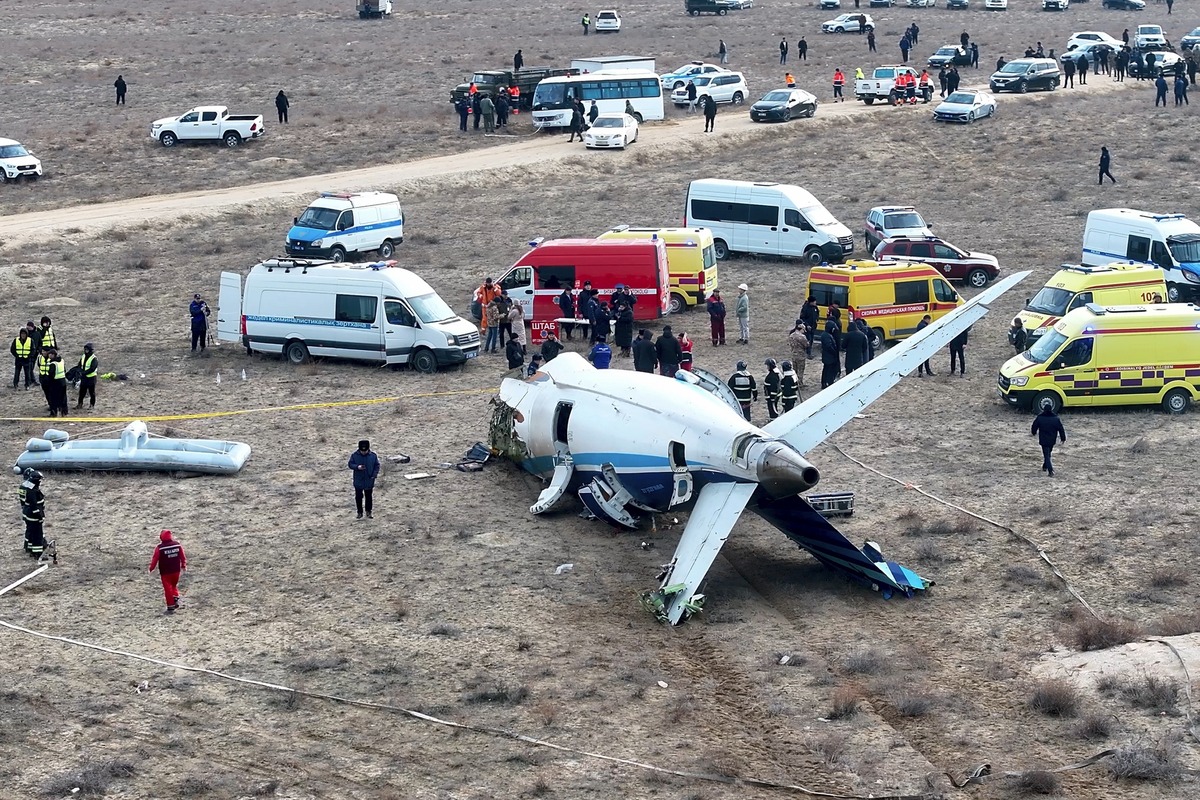Russia is withdrawing vessels from its naval base in Syria following the downfall of Bashar al-Assad, it has been reported, amid uncertainty over how Vladimir Putin can maintain his stepping stone in the Mediterranean Sea without a key ally in power.
The march of the Syrian rebels led by the group Hayat Tahrir al-Sham, which collapsed Assad's regime, was both a loss of face for Putin and a significant strategic blow to Russia given the amount of military assets it had in the country.
Satellite imagery on Monday showed Russia had pulled Mediterranean Sea Task Force vessels from Tartus which for decades had given it a port on NATO's southern flank and a staging post for operations in the Black Sea and Africa.
"They [Russia] do need some kind of foothold in the Mediterranean, not least because the Turkish straits have been closed to them because of the war in Ukraine," retired U.S. Vice Admiral Robert Murrett told Newsweek, referring to Ankara blocking the Bosphorus Strait to military vessels under the Montreux Convention.
"They need some good ports in the eastern Mediterranean. Tartus was the best option they had—they could probably try to seek out some others, but none of them will be as good as that," added Murrett, deputy director of the Syracuse University Institute for Security Policy and Law.

There are varying reports over what has happened to Russia's vessels. One by open-source intelligence analyst MT Anderson said Russian ships, likely the Admiral Gorshkov and Admiral Grigorovich frigates, the Novorossiysk Kilo-class submarine and oiler Vyazma were in a holding pattern five miles west of the port.
Ukraine's Defense Intelligence Directorate (HUR), which would relish any Russian strategic loss, said on Tuesday that military infrastructure at Tartus is being shut down and that evacuated forces and assets are expected to head for Baltic ports. But the Institute for the Study of War (ISW) said Monday it is unclear whether the vessels' removal are part of a wider evacuation or to better protect them.
"You need to have a steady presence and without this base, Russia's presence in Mediterranean will be in question," Yörük Işık, head of the Istanbul-based Bosphorus Observer consultancy, told Newsweek.
"They will try to reactivate the old Soviet network which to a certain degree they are already doing," he said. "They frequently use Algerian military piers and to a certain degree, they are using Libya, which is less stable."
"Russia will try to approach Algeria to more heavily use its piers which are in good shape. They will try to maybe do something in Benghazi and possibly even in Tunisia, but it will have a great negative effect."
Syria's opposition leaders have reportedly guaranteed the security of Russian military institutions, while former prime minister Mohammad Ghazi al-Jalali has said the new authorities will decide on their fate.
Russia has also planned to evacuate personnel and equipment from its other major military asset, Khmeimim Air Base in Latakia province.
But the potential loss of Tartus will be a tough blow for Russia especially given its long-term plans for the base, which included a signing a 49-year lease in 2015 and Ukraine's drones and missiles have delivered repeated strikes against Russia's Black Sea Fleet.
Russia had moved its ships away from its main hub in Sevastopol, in occupied Crimea, further east to Novorossiysk in Russia's Krasnodar region, but they are still vulnerable to strikes.
Işık said this Ukrainian naval success combined with Russia eliminated from much of the Black Sea—and now losing their presence in the Mediterranean—puts Turkey in its "most militarily advantageous positions since the end of the Cold War."
"This is a major problem for Russia, they are losing their capacity to operate," he said. Newsweek has contacted the Russian defense ministry for comment.






.png)













 English (US) ·
English (US) ·